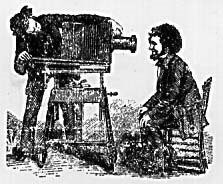According to Sardar and Van Loon, race is, “...central to cultural studies.” (Sardar and Van Loon 122). The articles imply that if there were no diverse cultures there would be no need for cultural studies. The only problem with having diverse cultures are that, “Non-Western cultures are often seen as obstacles to development, and this leads to racism against the seen as ‘outside mondernity’ or anti-modern.” (Sardar and Van Loon 122) The articles explain about how the Western world was racist against all other cultures. The Western world viewed, “different cultures in terms of how ‘different’ they are from English culture, not on their own terms.” (Sardar and Van Loon 123). This led to racism, which in turn helped to create Diaspora. These articles explain how even today there are many countries in exile from their homelands due to racism or war, which in return create, “tensions of power, of old (local) and new (often global) identities.” (Sardar and Van Loon 134).
Keywords: Race
Keywords defines race as, “a politically charged and ambivalent word that has evaded precise definition.” (290). Race can be associated with many things. It can be associated with crime (racial profiling), nationality, stereotypes, and riots to name a few. Throughout history many people have been worried about racial mixing, so in order to stop it, people would only let same race adoptions and degenerate nicknames for those who are of a mixed heritage. In the use of the word, race has been mixed up with ethnicity, nationality, citizenship, religion, history, language, culture, and identity.
Wikipedia: Diaspora
http://en.wikipedia.org/wiki/Diaspora
Diaspora refers to anyone or group of people forced to leave their native homeland. The most famous group is the Jews during WWII when Hitler persecuted them. Diaspora has happened all throughout history and even now; the struggles in Africa going on now, all of the civil wars that happened in South America which forced many to flee to Europe, when Japan had major influences over China and Korea, or even Hurricane Katrina, which displaces the entire city of New Orleans.
Another Source: Diaspora Space

No comments:
Post a Comment